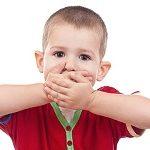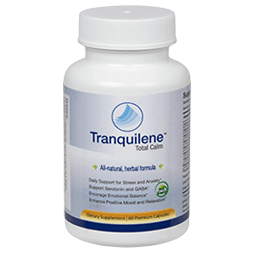Being a child can be quite confusing. If we close our eyes, we can take ourselves back to that uncertain little person. From learning how to ride a bike to fitting in at school to the seemingly endless pile of homework, growing up is a fulltime job! No wonder 2.6 million young Americans have been diagnosed with anxiety. Do you suspect you have a child with anxiety? Here are the signs that you’re loved one is struggling with this mental health condition.
What Creates a Child with Anxiety?

There are many reasons you may have a child with anxiety. Some of these reasons might be genetics. If your family has a history of mental illness, your child is more susceptible to developing the same attributes. Other causes may be environmental. Perhaps your child lives in an environment where there is a lot of fighting? Maybe there’s been some instances of abuse. We like to imagine our children live in a bubble, but they have their own experiences that shape their mindset.
Don’t worry; not all factors involve you or your lineage. Your child is an individual. Just like you react to everyday stressors, so do they. Except you are better equipped to handle these stresses head-on. Younger people still trying to figure out their way through life may shut down and develop anxious thoughts instead.
Truth be told, there are innumerable factors that plague a child with anxiety. Some are within the parent’s control; others aren’t. What is truly important is that you notice the signs and get help immediately.
One in 20 students suffer from anxiety. With millions of children in the world, the odds you have a child with anxiety is pretty high. Don’t live in denial and talk to your child about their stress.
Common Conditions a Child with Anxiety May Experience
Anxiety comes in many forms. Different anxiety disorders are classified by intensity and frequency. It’s entirely reasonable for a child with anxiety to get fleeting bouts of these feelings. It’s when anxiety becomes chronic that further mental health issues may develop and impede their life.
Differentiating between anxieties is essential as a parent. A child with anxiety may need help to cope with their condition. Be sure to keep your eyes (and your line of communication) open during these formative years.
Common conditions a child with anxiety may experience include:
Generalized Anxiety Disorder (GAD)

This is the most common disorder for a child with anxiety to experience. As the name implies, there are general worries that concern most children. GAD covers everything from peer pressure to worry over parents getting a divorce to acing a test. Those with GAD are driven to please others, placing an unwarranted burden on their young shoulders. Most of us deal with GAD multiple times throughout our lives.
Panic Disorder

Panic disorders are diagnosed when children with anxiety have multiple panic attacks in their lifetime. This disorder is when children can’t focus on anything but their anxieties. These thoughts are overwhelming and cause them to experience rapid heartbeats, shortness of breath, and a rise in anxiousness.
Social Anxiety Disorder

The awkwardness of childhood is never more present than in the common mental health condition known as Social Anxiety Disorder. With the acronym SAD, Social Anxiety Disorder is prevalent in children with anxiety over fitting in. They tend to be wallflowers in social situations to the point where it may cause a panic attack. Those with Social Anxiety Disorder hate being called on in class, can’t find a seat on the bus, and sit alone during lunch.
Obsessive Compulsive Disorder (OCD)

Children with Obsessive Compulsive Disorder, or OCD, have no control over their impulses. Their mind fixates on specific thoughts, words, or actions. This constant rummage throughout the brain causes these children to develop particular habits and rituals that may grow to dictate their life.
Post Traumatic Stress Disorder (PTSD)

Our childhood is such a formative part of our lives. Therefore, what we experience in those years may have a lasting effect on the rest of our existence. These life-changing events can be anything from sexual abuse to witnessing a death to violence in the home. A child who has experienced a very traumatic event may become paralyzed with fear. Bouts with PTSD may cause the child to become numb, easily irritable, and withdrawn.
Mutism
In some cases, a child with anxiety may take an internal vow of silence. Select mutism is when a child doesn’t speak in public. They may wish to, however, the crippling fear causes them to tense up, stopping words from escaping their mouth. While talkative at home, a child with mutism may not utter a single syllable during school time, negatively impacting their social and educational development.
Signs You Are Living with a Child with Anxiety
There are three ways to determine you are living with a child with anxiety. Look at their behavioral, emotional, and physical actions. From there, you can make a better decision if you have a child with anxiety. If you do suspect your child has anxiety, please contact a physician immediately.
Behavioral Symptoms of a Child with Anxiety

A child with anxiety is overwhelmed by their emotions. Think of yourself when you are swamped. You are swimming in responsibilities, and every time you think you are about to get your head over water, a wave splashes over your head. It makes you want to stop swimming. As an adult, you know you can’t; but as a child, you don’t feel the same.
Children shut down in times of tremendous anxiety. Therefore, behavioral symptoms of a child with anxiety may include:
- Saying “I can’t” when faced with a task
- Refusal to speak
- Requesting not to go to school
When children are battling anxiety, they don’t want others to catch on. Therefore, they act withdrawn. They hope to blend in with the shadows and that no one will notice they are suffering. That is why other behavioral symptoms of a child with anxiety include:
- Staying in during recess
- Opting out of parties and after school activities
- Remaining silent when playing with others
A child with anxiety wants to remain comfortable. Therefore, they will grow attached to an authority figure. At home, that authority figure is you. During school hours, a child with anxiety will latch onto a teacher. More behavioral symptoms of a child with anxiety include:
- Anger when separated from parents or teachers
- Constantly seeking approval from authority
Children with anxiety want to fit in with their parents and teachers. That way, the adult figures will enjoy having them around and maybe even let them stay home from school, church, or practice. Winning over an adult gives the children hope that they don’t have to deal with their social anxieties. This sort of clingy behavior is a crucial sign you are dealing with a child with anxiety.
Emotional Symptoms of a Child with Anxiety

Anxiety is a mental condition. As the word “mental” suggests, a child with anxiety has to deal with a lot of emotional baggage. Unfortunately, children haven’t developed the coping mechanisms necessary to deal with anxiety properly. This lack of development makes the anxiety worse for the child; however, it makes realizing you have a child with anxiety easier.
A child with anxiety has emotional symptoms that you will notice immediately, such as:
- Feelings of sensitivity
- Frequent crying
- Unexplained grouchiness
- Panic attacks
- Throwing meltdowns and tantrums
These sort of reactions are more common when you have a young child with anxiety. As they get older, emotional responses become a bit more complicated. Psychological symptoms of an aging child with anxiety include:
- Over-exaggerated fears/phobias
- Crippling fear over tests
- Worrying over others knowing about their anxiety
- Fears over making mistakes
Emotional symptoms do more than make for an awkward moment. They can also start to interfere with everyday life. You will notice emotional symptoms hindering children with anxiety when they experience:
- Frequent nightmares
- Worry over going to school, work, sports
- Stress over the future
Fear of the unknown will start to ruin their future. Lack of sleep will hinder their productivity. The overwhelming cloud of uncertainty that is the future can make them give up. All of these behaviors can have a critical impact on the future of a child with anxiety.
Physical Symptoms of a Child with Anxiety

Behavioral and emotional symptoms of a child with anxiety are hard to pinpoint because a lot of the signs are internalized. Besides noticing a child has become withdrawn, you may be unaware of what is happening on the inside. However, there are physical symptoms of a child with anxiety.
These include:
- Shakes or sweats in stressful situations
- Restless or being fidgety
- Hyperactivity (not necessarily ADHD)
Other symptoms may not be as blatantly obvious but are signs you can see with the blind eye. They include:
- Refusal to eat
- Bathroom issues
- Trouble sleeping
- Complaints of headaches
- Tense muscles
If you notice any of these symptoms, there is a chance you have a child with anxiety. Get a professional opinion. Talk to teachers and a physician about the signs.
How to Help a Child with Anxiety
Your child is out from under your watchful eye for so much of the day. You may feel a bit helpless when it comes to helping a child with anxiety. However, you are not alone. As we mentioned, strike up a conversation with those who interact with your child all day. Try to pinpoint the sources of the child’s stress so you can react to them accordingly.
Obviously, you should speak to a physician and/or mental health specialist. You don’t want to ignore the signs of a child with anxiety. There might be something more serious going on that you had no idea about. Also, not tending to a child with anxiety can open the door for chronic mental health conditions to fester.
One of the best ways to help a child with anxiety is to improve their system find some balance. To do this, try giving your child an all-natural supplement that will help them with anxiety. Tranquilene promotes emotional balance because it contains elevated levels of GABA. GABA is the calming neurotransmitter in our mind that fights off our stress hormone, cortisol. Our formula contains other botanicals like ashwagandha, passion flower, and Brahmi. These all-natural ingredients have shown to help calm the system, helping your child with anxiety cope with stress naturally.
Do you have a child with anxiety? How do you help them deal with the stress? Let us and other parents know in the comments below!












